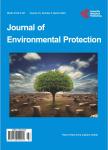Estimation of the Carbon Sequestration Dynamics of Senegal’s Great Green Wall Based on Land Cover over the Past Three Decades
Estimation of the Carbon Sequestration Dynamics of Senegal’s Great Green Wall Based on Land Cover over the Past Three Decades作者机构:LASMES UFR SSMT Université Félix Houphouët Boigny Abidjan Côte d’Ivoire EAMAC ASECNA Niamey Niger Fondation Cæur Vert Abidjan Côte d’Ivoire International Council on Environmental Economics and Development (ICEED) New York NY USA
出 版 物:《Journal of Environmental Protection》 (环境保护(英文))
年 卷 期:2023年第14卷第12期
页 面:954-983页
学科分类:0202[经济学-应用经济学] 02[经济学] 020205[经济学-产业经济学]
主 题:Great Green Wall of Senegal Land Cover-Land Use (LCLU) Carbon Storage
摘 要:The severe drought observed in the Sahel during 1970s, 1980s and 1990s has deeply affected the population as well as the economies and the eco-systems of this climatic area. The GGW Initiative spearheaded by Africa Union in 2007 proposed to combat the land degradation and desertification by planting a wall of trees stretching from Dakar to Djibouti. A reforestation was then conducted in the Senegal’s GGW since 2006 as part as other areas in the Sahel. This paper aims to evaluate the carbon sequestration dynamics in the sites of the Senegal’s GGW over the last three decades. The method consists firstly of analyzing the evolution of land cover and land use dynamics based on ESA-CCI LC satellite data. There is an improvement of the surface areas of tree and shrub savanna of 11.40% (Tessekere), 8.25% (Syer) and 2.70% (Loughere-Thioly). The regreening of the different localities and a positive dynamic observed is explained by the return to normal rainfall and to reforestation actions, agroforestry practices, better management of natural resources undertaken. However, some non-reforested sites showed an opposite trend despite of the normal rainfall. Secondly, the results on land mapping are used as a proxy for the assessment of carbon stocks. The dynamic observed in vegetation cover since the beginning of the reforestation made it possible to sequester 5.8 million tons of carbon representing respectively 2.31% of African GGW. This gain in stored carbon is equivalent to 21.2 million tons of CO2 captured in the atmosphere. Through this study, it appears that carbon storage becomes significant 8 to 10 years after the start of reforestation. An urbanization without respect for the environmental factors could be a danger for the climate (case of Ballou).



